Federal push for domestic production of the precious metal could reopen a remote mining region—and inspire reaction

Boom town? In one of the least populated parts of the West, McDermitt could become the focus of a global industry. Photo: Ken Lund/CC
By Jordan Rane, December 14, 2021. A lithium-mining boom could be in the works in southeastern Oregon. That’s according to an Australian mineral exploration company targeting a site in Malheur County for the coveted battery metal that fuels cellphones, laptops and electric vehicles.
Perth-based Jindalee Resources Ltd. announced this month it will test drill for lithium deposits on the edge of a volcanic caldera near the community of McDermitt (pop. 126—or so), which occupies both sides of the Oregon-Nevada border.
The area is known to be naturally rich in sediments of the soft, silver-white element.
Lithium—the world’s lightest pure metal, number 3 on the periodic table—is famous for being able to float on water and stabilize human moods. But even more so these days as a vital global commodity for powering electronic devices, renewable energy storage and recent federal mandates to increase domestic production of it and reduce foreign dependence.
MORE: Majority of Idaho legislators support Idaho gold mine proposal
Approval for Jindalee’s McDermitt Lithium Project test drilling—39 planned holes in all—was granted by the Oregon Department of Geology and Mineral Industries.
According to an Oregon Public Broadcasting report, this is the first known application received by the Mineral Land Regulation and Reclamation office to explore for lithium in the state.
Just how much lithium could be hiding beneath this largely unpopulated part of the country?
Over 10 million tons, notes a Jindalee press release after a preliminary scoping study. This would make it one of the largest lithium deposits in the United States, according the company.
“An absolute monster,” is how Jindalee executive director Lindsay Dudfield described the area (as it pertains to untapped lithium) on the financial media network Proactive.
Global market surging
Currently, a single lithium mine operates in the United States (in Nevada). It produces just over 1% of the world’s lithium supply, according to Forbes.
Australia, the world’s top lithium supplier, produces nearly 53%, followed (distantly) by Chile, China (by far the world’s top lithium consumer) and Argentina.
But this needle could shift over the next five years with global lithium production expected to almost triple due especially to a surging electric-vehicle market.
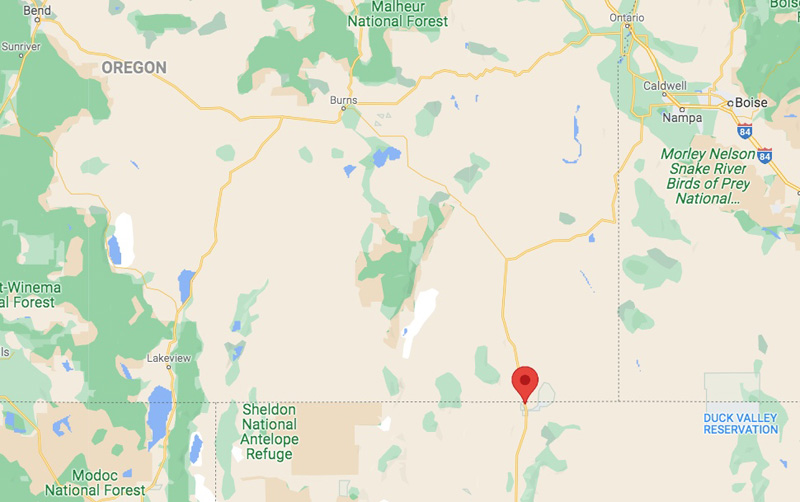
Red pin indicates approximate location of McDermitt, Oregon-Nevada. Google Maps
U.S. production is expected to grow following an executive order issued by the Biden administration for an in-depth analysis geared toward strengthening the domestic lithium supply—including mining raw materials for lithium-battery production.
“With the global lithium-battery market expected to grow by a factor of five to 10 by 2030, it is imperative that the United States invests immediately in scaling up a secure, diversified supply chain for high-capacity batteries here at home,” stated a Department of Energy report in Febraury, following Biden’s “100-Day Battery Supply Chain Review.”
Jindalee has cited the report to, as the company states, “reinforce the significance of McDermitt as a potential long-life source of future supply to the rapidly growing U.S. battery-manufacturing industry.”
Possible pushback
An historic mining region dotted with ranches and farms, McDermitt shuttered its last mine (for mercury) in 1990.
Lithium—and the federal push to up domestic production in efforts to shift away from fossil fuels and other extractive industries—could change that here.
It could also lead to a wave of additional lithium mining throughout the West, though not without contention.
A proposed lithium mine on the Nevada side of the caldera site at Thacker Pass has recently led to controversy over environmental concerns, ranching encroachment and the desecration of Tribal sites.
Columbia Insight contributing editor Jordan Rane is an award-winning journalist whose work has appeared in CNN.com, Outside, Men’s Journal and the Los Angeles Times.


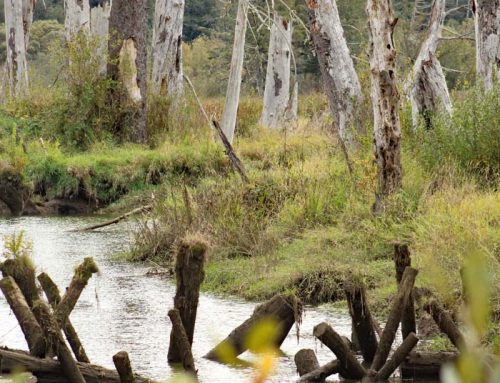
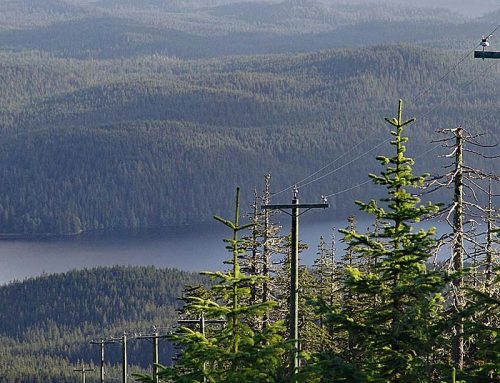
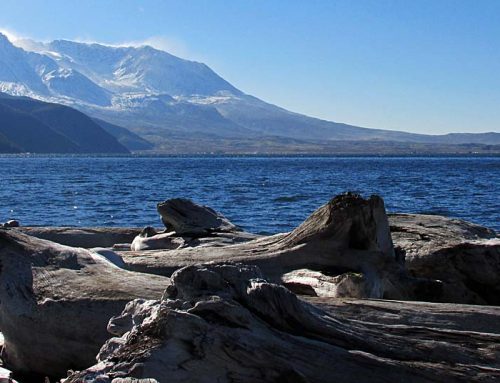
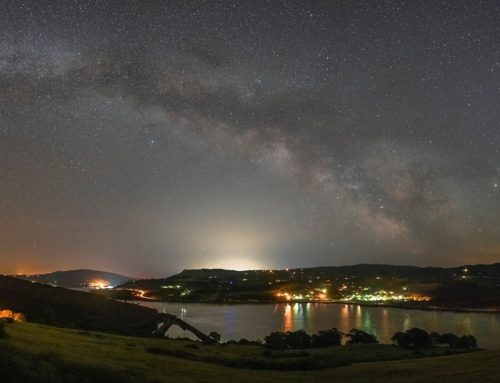
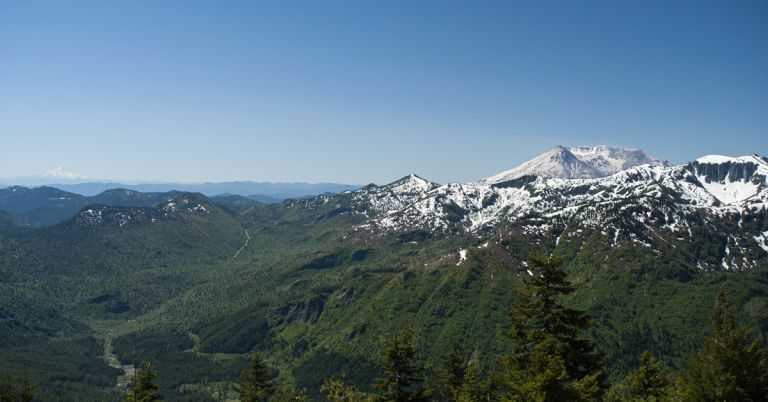
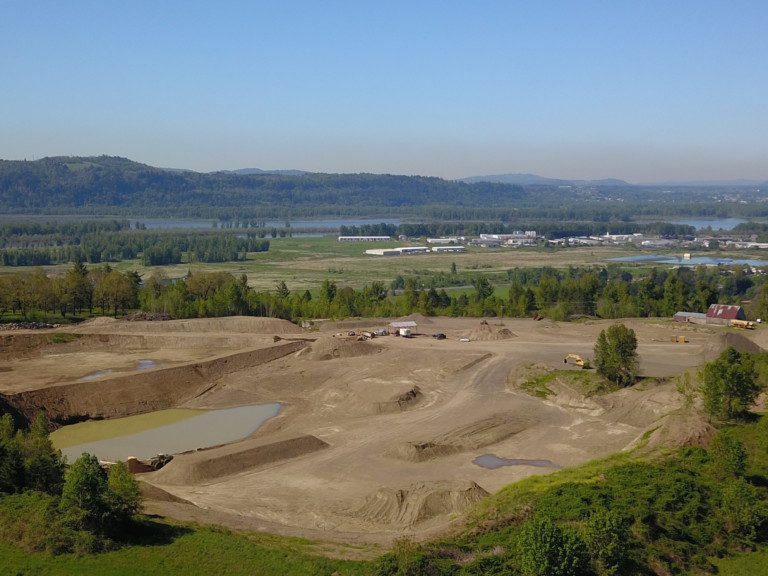
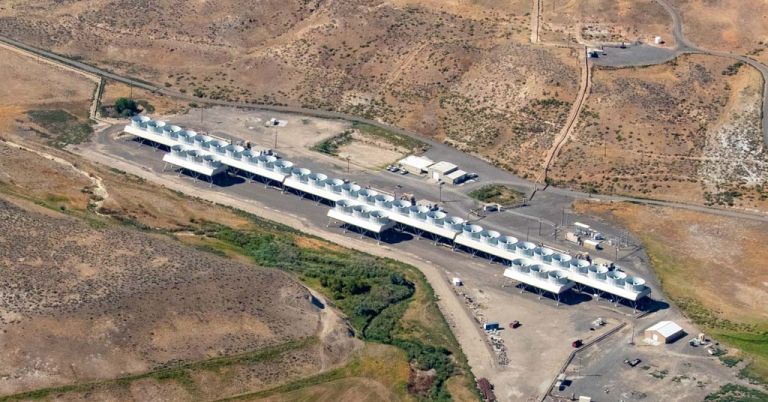
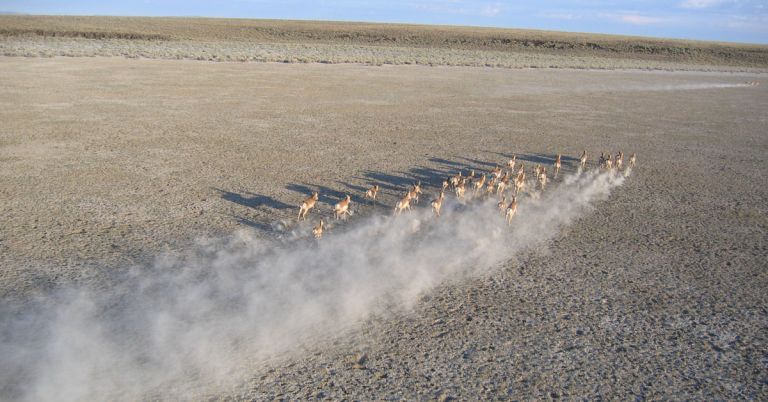


“secure, diversified supply chain for high-capacity batteries here at home“ But not for oil. The guy has no clue.
If. The. Lithium. Is. There …….Go. For. It. That. Reagion. Of. Our. Country. Can. Use. The. Jobs. However. Biden. Can. Get. His. Foot. Off. Of. The. Neck. Of. Our. Domestic. Oil. Industry
Good information. We who use lithium batteries need to understand the impacts of our demand. While jobs from mining will occur there will be environmental impacts and to cultural resources